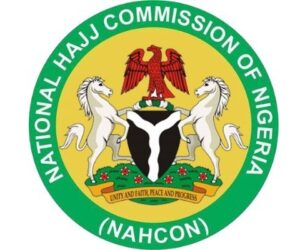Africa’s venture capital firms (VCs) are increasingly taking the lead in funding rounds, marking a shift to greater local involvement in the continent’s rapidly expanding startup ecosystem.
In October 2024, Moniepoint achieved unicorn status after closing a $110 million Series C from Lagos-based Verod Capital, which joined Google’s Africa Investment Fund and Lightrock as investors.
In recent months, notable deals have highlighted how homegrown investors are backing innovation across fintech, clean energy, e-commerce, and human resource (HR) technology. These transactions underscore how African or Nigerian VCs are moving beyond seed bets to play a more decisive role in scaling startups.
“While global investors often wait for signals before backing African startups, the real catalyst is local venture capital firms. Local VCs must take the first step, which is not just with mentorship or training, but with actual capital, to show that African startups are viable. Once that confidence is built, global funds will follow,” said Frank Samuel, investment associate at Sahara Impact Ventures.
Read also: Emerging cyber threats targeting African startups
He cited the advantage local investors bring, which is their deep understanding of the context, noting that they know the networks, the government touchpoints, and the partnerships that can unlock growth opportunities for startups.
“Unlike international funds, which add value when startups scale globally, local VCs are the ones that can navigate ministries, state institutions, and technical financing to support innovation on the ground. That’s why the next big funding wave in Nigeria and across Africa will be led by local venture capitalists,” Samuel stated.
Abiodun Lawal, principal at Heave Ventures said, “While foreign investors come with cash and little oversight, local investors have the opportunity to ‘go beyond cash.’
“Local investors can leverage their strengths such as domain and context awareness, nuances, introductions, policy influencing, and lobbying,” Lawal said.
He noted that these ‘beyond cash’ activities improve returns as investments are de-risked. “The fine balance however is that investors should not get in the way of the entrepreneurs.
“We believe Africa is not Silicon Valley. Our terrain is called the Tropical Savannah,” Lawal stated.
Zone, a payment infrastructure startup, closed an $8.5 million seed round in March 2024, co-led by TLcom Capital, one of Africa’s most active early-stage funds. SunFi, a clean energy company, also secured $1 million in early 2025 with backing from Ventures Platform, Delta40, and Kaleo Ventures.
Accrue, a fintech platform, raised $1.58 million, led by Lattice Fund with contributions from other regional backers. The momentum has continued into mid-2025 as Solar energy provider, Arnergy, raised $18 million in a Series B round that included local participation, while construction e-commerce startup CutStruct and HR solutions company PaidHR each secured $2 million seed rounds with Zedcrest Capital among the investors.
Local VCs such as Microtraction and newer players like Future Africa are offering important lessons on how domestic capital can lead, shape, and sustain startup ecosystems.
Microtraction has built its reputation by investing early — often in pre-seed or seed round startups. It has actively provided small but meaningful checks to founders who are just getting started.
A recent example is Microtraction’s Community Fund (first close $15 million), which aims to write first cheques of $100,000 for about 7 percent equity in early-stage African tech companies, with options for follow-ups.
Future Africa describes itself as a ‘founding investor’ with check sizes in the $100,000-500,000 range. They build a community of founders, investors, advisors, corporates, and government partners to support portfolio companies from early on.
The network effect helps founders access more than just capital, but also advisory services, partnerships, institutional support, and so on.
Local VCs often invest in startups solving problems specific to Nigeria or Africa, ranging from fintech, edtech, healthtech, or logistics, rather than only chasing global tech export stories. For Microtraction, its portfolio spans fintech, health tech, SaaS, edtech, crypto, gaming, and mobility across Nigeria, Ghana, Kenya, and Rwanda.
Read also: Nigeria’s 22 startups in Africa’s top 100
Challenges
The challenges faced by local VCs are lingering structural and market challenges, which include limited pools of domestic institutional capital such as pension funds.
Sovereign wealth funds in Nigeria often have mandates, risk appetites, or regulatory constraints that make early-stage tech investments difficult.
Beyond capital, scaling companies needs legal, HR, compliance, operations, international expansion, and many local VCs are still building those support systems.
Local VCs also face competition from foreign VCs with deeper pockets, global networks, and the ability to write larger cheques.
By writing larger checks and co-leading rounds with global players, homegrown investors are positioning themselves as key drivers of the next wave of African innovation funding.
As Nigeria’s tech ecosystem expands rapidly, local venture capital (VC) firms are increasingly stepping up as key drivers of innovation, capital deployment, and sustainable growth.








